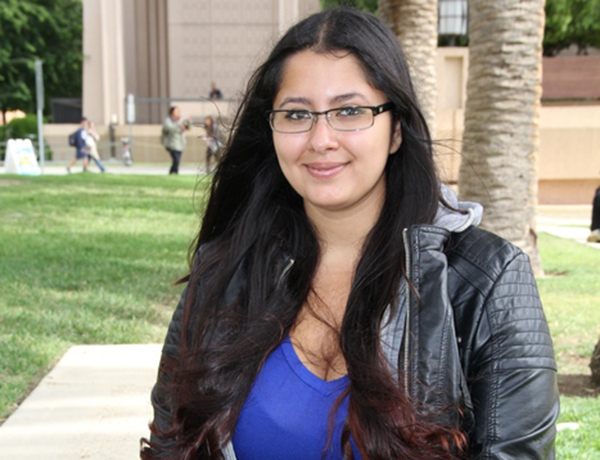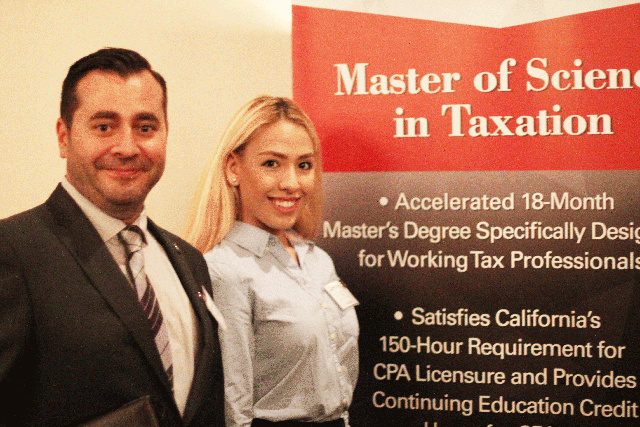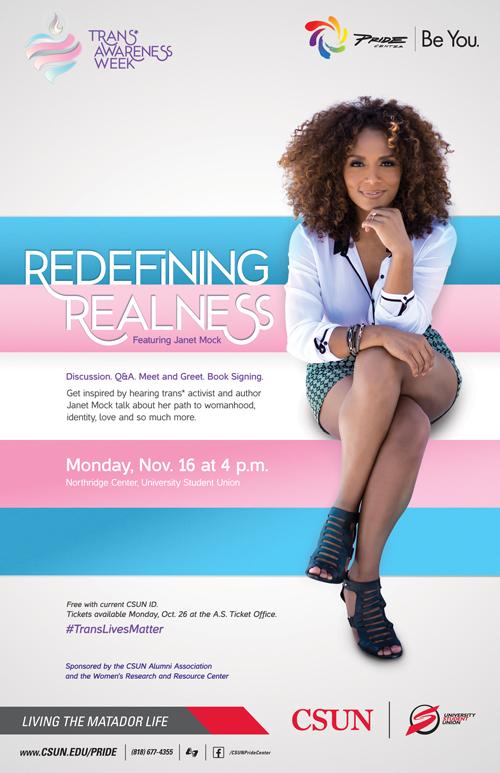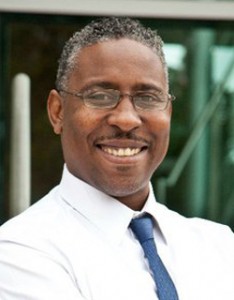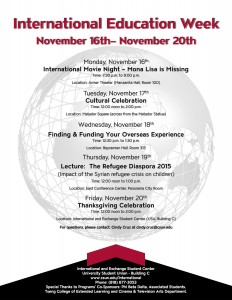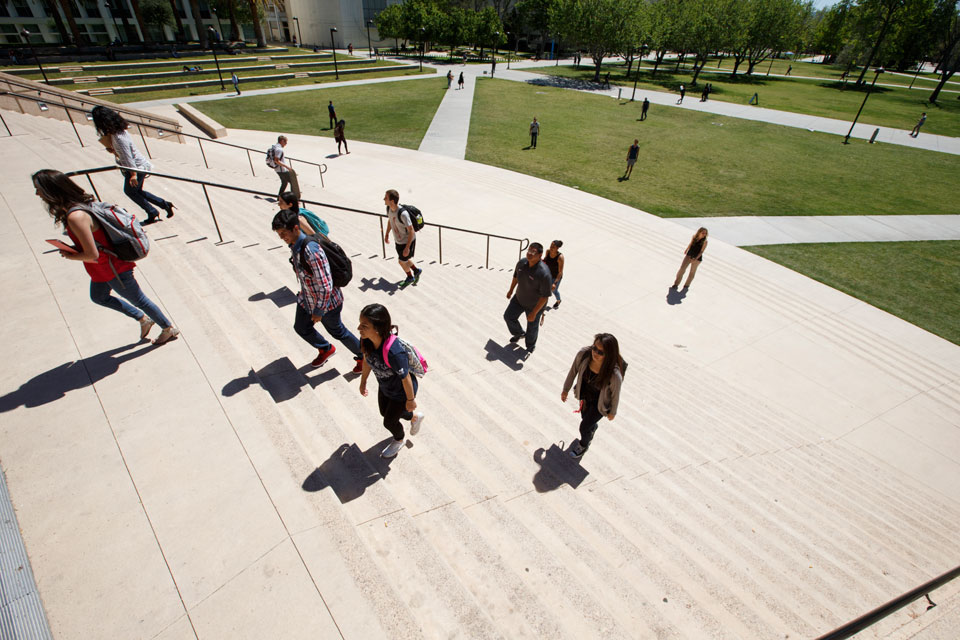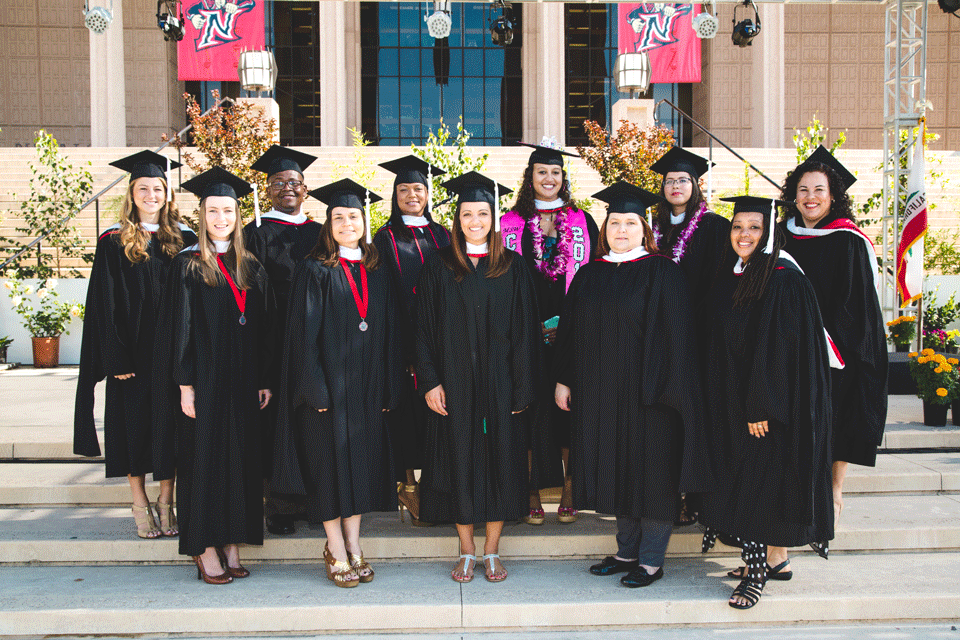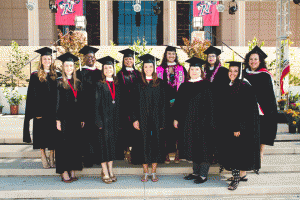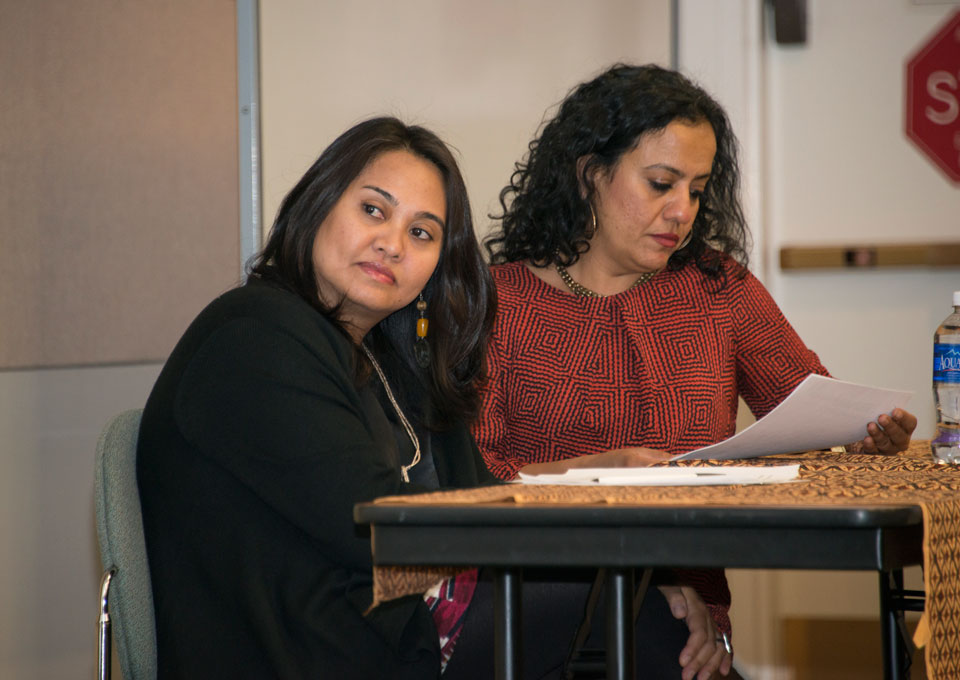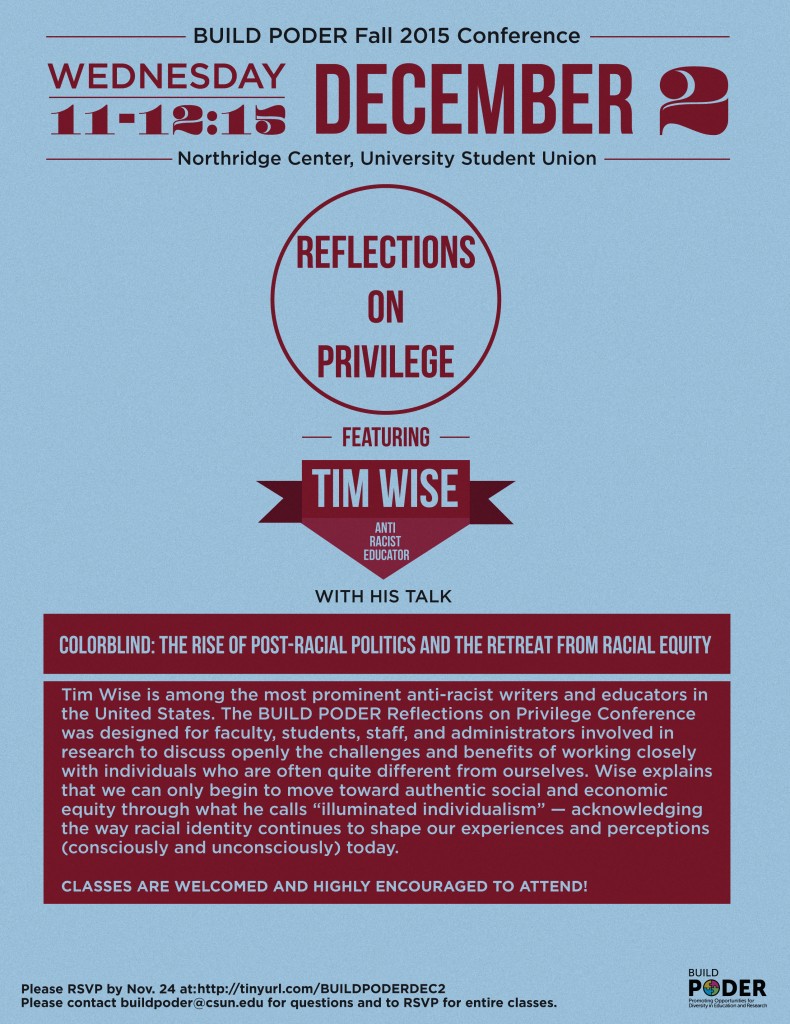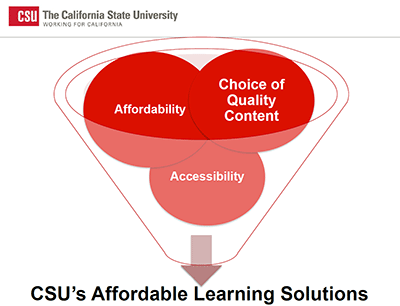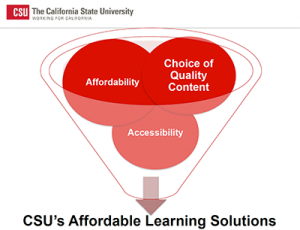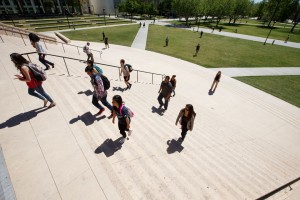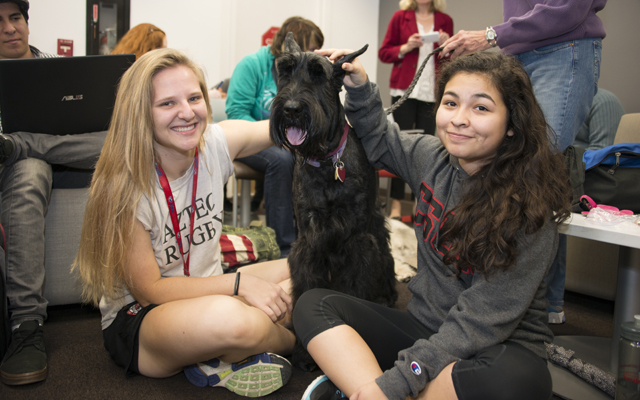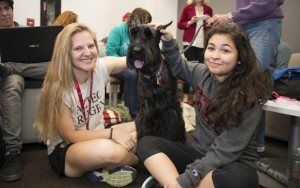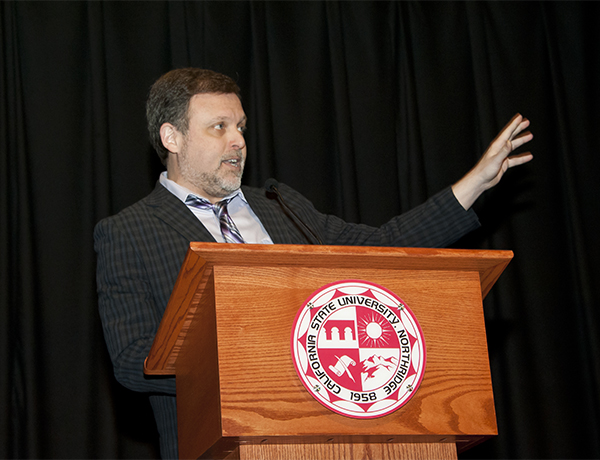![]()
![CSUN is a lead when it comes to teaching students financial literacy. Photo by Lee Choo.]()
CSUN is a lead when it comes to teaching students financial literacy. Photo by Lee Choo.
As the United States continues to recover from the Great Recession, California State University, Northridge is promoting financial literacy to help a new generation of students make better decisions and invest in their future.
What does it mean to be financially literate? Gregorio Alcantar, a CSUN financial aid counselor and financial literacy coordinator, said knowledge is key.
“To be financially literate is to have the information and the capacity to make an informed financial decision,” Alcantar said. “If you are informed, you will make the right decisions. But even if you make the wrong decisions, at least you know what is going on.”
Alcantar called CSUN a trailblazer in providing campus-wide financial literacy education at the university level. The Financial Aid and Scholarship Department has provided several workshops and webinars as a part of their financial literacy program every semester since 2011. This semester’s programming includes the importance of saving money and budgeting while in college, managing student financial aid awards and the judicious use of credit cards and loans.
Alcantar said that about 75 percent of CSUN students receive some form of financial aid, and many have trouble managing their financial awards because they often lack skills in budgeting, goal-setting and long-term planning.
“When you get your financial aid check, how do you make it last for 15 weeks?” Alcantar said he asks students. “Students spend the money quickly and think that wants are needs. We have to teach them about delayed gratification and priorities.”
He pointed to the financial struggles for students living off campus. For example, if a student receives a $3,000 check, he or she needs to budget in advance how much is needed every month for living expenses. In the financial literacy workshops, students learn tricks that make it harder to spend the money quickly, such as taking out cashier’s checks and putting them aside for their monthly rent, Alcantar said.
The financial literacy program collaborates with other groups on campus, including the University Student Union, Career Center, University Counseling Services and the Klotz Student Health Center, to reach out to students, and department staff members give presentations in freshman level University 100 classes.
The financial aid department also works with CSUN Saves, another program on campus dedicated to financial literacy. Spearheaded by family and consumer sciences professor Linda Bradley, the program is an affiliate of the national America Saves campaign, an initiative sponsored by the Consumer Federation of America. In addition to participating in the annual America Saves Week, CSUN Saves engages students through events and social media.
Bradley incorporates CSUN Saves into her family finance course as a service-learning project in which students organize and participate in the promotion of financial literacy on campus. CSUN is the first university in the country to use service-learning with an America Saves campaign.
“Our goal is to keep putting financial education information out in front of students any way we can,” Bradley said. “Giving students the opportunity to teach others is important, because teaching someone else helps enhance learning and helps you remember the material. They get out and talk to other students about the importance of saving money, setting goals and learning how to budget.”
Bradley said her class comes up with creative and fun ideas to reach out to students. In spring 2015, CSUN Saves hosted a financial resource fair and board game night where students played games such as Monopoly, CASHFLOW and Pay Day. Wells Fargo and CSUN’s Institute of Community Health and Wellbeing provided pizza and refreshments, while representatives from the financial aid department, Wells Fargo, Matadors Community Credit Union, 1st Choice Financial Education and Counseling, CSUN Smart Spenders and the CSUN Bookstein Institute for Higher Education in Taxation presented to students or provided information and prizes.
Students also use social media and written and multimedia content to promote financial topics relevant to their CSUN classmates, such as where to use a student ID card to get discounts, how to use coupons to save money, how to entertain on a budget and finding smart ways to earn extra income. The campaign also encourages students to make pledges to save money and come up with a plan to follow through.
Caterina Galvez, a junior majoring in social welfare and social justice, said she got involved with CSUN Saves after she realized the importance of financial literacy while transitioning into adulthood. She recognized she would soon be making financial choices about buying a home, contributing to a retirement fund and building an investment portfolio.
“It is very easy to make financial mistakes that can be both costly and take years to reverse if one doesn’t have an idea of how financial matters work,” she said. “From the class, I took away a multitude of financial ideas — from how to properly use credit to deciding whether I should buy or rent a car or home.”
She learned that goal-setting is important, Galvez said, as money management can be hard for CSUN students juggling multiple responsibilities with limited resources.
“Students face many challenges with money management due to limited income, rising prices of goods and having to pay for everyday needs and bills, as well as unpredictable needs like having to go to the hospital or buying a new part for their car,” Galvez said. “Money management also takes a lot of time and tracking, which most students can’t afford on top of classes, work, studying and social time.”
Bradley said financial literacy is very important for all students to learn, but especially for many of CSUN’s first-generation college students.
“A lot of students at this school support their family, and they have genuine financial concerns,” Bradley said. “It’s not just about saving money for a trip to the Bahamas for spring break — they are helping their parents pay rent. It’s about helping those students where they are now, and helping them move forward to get to better things.”
CSUN Saves will host a Financial Resource Fair and Board Game Night from 6 to 9 p.m. on Tuesday, Nov. 17, in Sequoia Hall Room 112. Program organizers will also share information at the weekly campus Farmers Market, from 10 a.m. to 2 p.m. every Tuesday until Nov. 24, at East University Drive and Cleary Walk. For more information, visit www.facebook.com/csunsaves.
The financial aid department will host workshops and webinars throughout the semester. The next workshop will take place at 2 p.m. on Dec. 3, and will focus on the misconceptions about how to build and maintain good credit. The next webinar will take place at 4 p.m. on Nov. 13, exploring “Four Money Pitfalls to Tackle While in College.” For a complete list of workshops and webinars, visit www.csun.edu/financialaid/news/fall-2015-workshops-webinars.
The campus is located at 18111 Nordhoff St. in Northridge.
